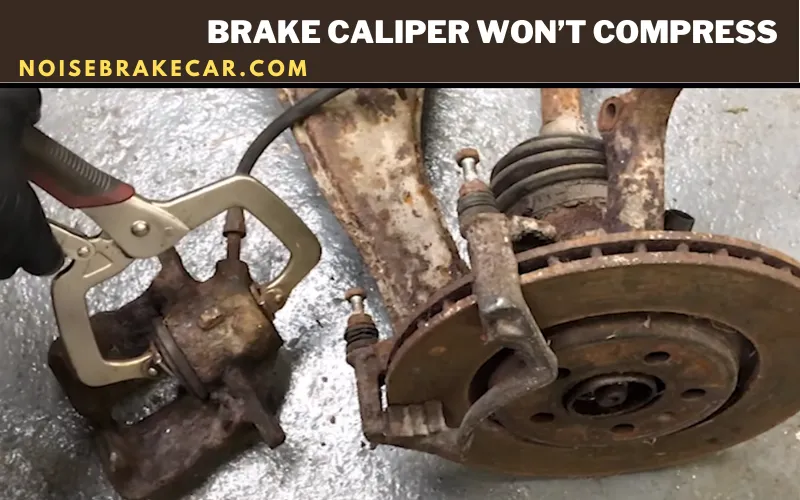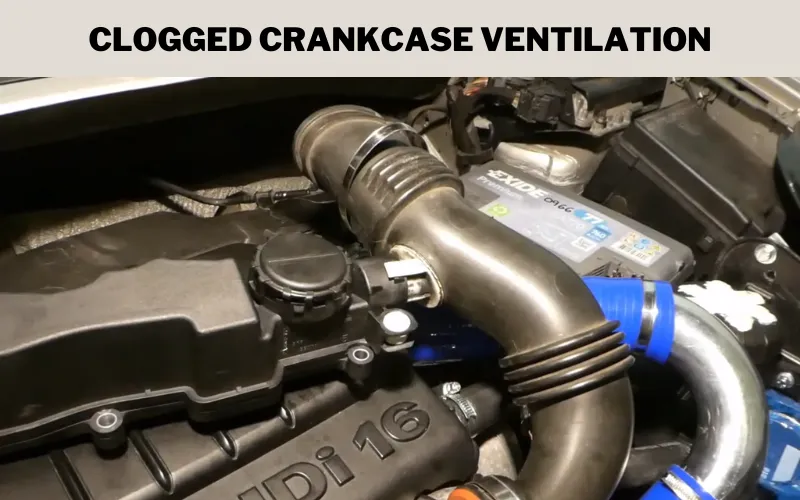The most important part of the vehicle braking system is the caliper piston. If the caliper piston cannot compress itself, your brakes will no longer work properly. What could cause this component to freeze and how can it be fixed?
We go over the top five reasons of caliper piston problems in this article.
Reasons Brake Caliper Piston Won’t Compress
- Poor or Wrong Oil Quality
- Bad PCV Value
- High Oil Pressure
- Clogged Crankcase Ventilation
1) Poor or Wrong Oil Quality
The piston is prone to corrosion by nature because it is composed of metal. The caliper pistons may stop working properly if they rust or corrode. Another symptom of this problem could be an odd rubbing noise coming from the front wheels when you drive.

Maintaining clean, debris-free calipers is the best defense against this. No matter how minor the trust, you should always clean off any traces by checking the caliper on a regular basis.
Additionally, corrosion can be avoided by keeping your car in regular use. You are more likely to have to deal with this issue if you intend to store your car for an extended period of time.
2) Bad PCV Valve
Brake failures can be caused by brake damage caused by dirty water. Siphon plunger becomes siphon because water cannot return master cylinder. Unfortunately, visual inspection will not indicate that this is present.
Read More: Electric Parking Brake Problem | Complete Guide| Reasons
Fell forward. Generally, it does not leaker water or show any other signs of water. On the brake pads and opening the bleed value are two ways to determine if the brake pads are bad. Read below.
3) High Oil Pressure
The brake hose is collapsed. The hose’s internal construction might be harmed if no fluid emerges.
Worn Piston Boot or Seal:
There are seals on the piston to stop leaks. However, with time, these seals are also prone to deterioration. Water intrusion into the piston due to deteriorating rubber can exacerbate the corrosion problem. This piston cannot correctly retract back into the housing if the seal is broken.
4) Clogged Crankcase Ventilation
Even when you are not applying pressure to the brake pedal, this condition maintains the brake pads contact with the rotor.
Incorrect Wind Back Procedure
Certain brake systems require the piston to be compressed using a specialized wind back tool. You might not be able to get the pistons to retract if you misuse the tool or do things incorrectly.
It’s crucial to always heed the guidance provided in the factory service manual because of this. A wind-back tool can save a ton of time even if it is not required. Most auto parts store is happy to rent them out to customers if you do not own one. Electric rear piston needs a reset with scan tool.

Should You Repair or Replace a Stuck Brake Caliper?
Advice on this question is hard to give because every situation is unique. You might be able to avoid buying a replacement if you can compress the stuck pistons. If they are sticky, you should still clean them off and attempt to get them operating normally once more.
Alternatively, new parts for the caliper repair are an option. But this approach takes a lot of time, and in most situations, it doesn’t save much money. It’s usually preferable to just replace the brake caliper and enjoy peace of mind that comes with having a new part installed rather than going through the hassle.
More Information: Why is My Car’s Brake and Battery Lights are come on same time?
What is Cost of Brake Caliper Replacement?
Depending of the kind of car you drive and local labor costs, replacing the brake the brake caliper could cost you anywhere from $250 to $500. If you can, replace the caliper yourself.
Worn-Out Engine
It is far more economical than having to buy parts, which rang from $100 to $300. However, the cost of repair might be different if the stuck caliper is the result of another problem, like a broken hose. To check what you are looking at, get an estimate from a nearby service center.
Can You Drive Even If the Caliper Piston Does Not Stop?
If the caliper piston does not stop, driving is not safe. An important part of the braking system, caliper piston is responsible for creating friction by applying pressure to the brake to slow and stop the vehicle if the caliper piston is not retracted the brakes may not work properly. This may indicate a problem with the brake system.
This can make it difficult or impossible to stop the vehicle, which can be dangerous. It is recommended that you take your vehicle to a qualified mechanic as soon as possible to have the caliper piston checked. They can diagnose the problem and do what’s necessary to make sure your car’s brakes are in good shape.